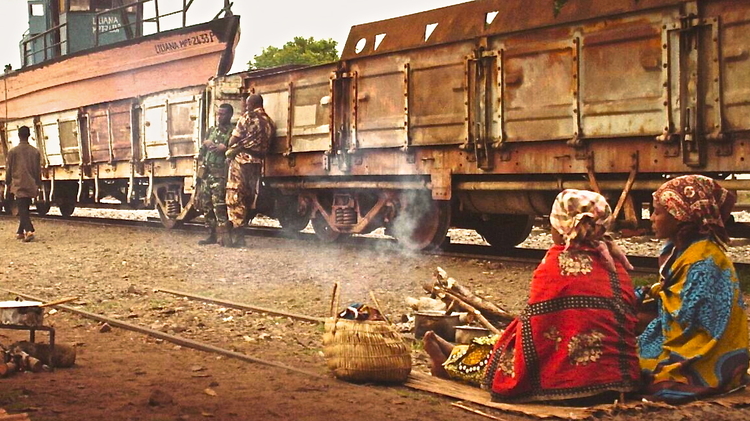
Please note: This was screened in Nov 2018
Mozambique’s first ever entry to the Oscars® is an epic tale of Rosa, a young and hopeful nurse, and Taiar, an idealistic soldier, both braving the necessary and treacherous journey from northern Mozambique to Malawi during the brutal civil war of the 1980s.
Mozambique is at war. A single train connects Nampula to Malawi. No civilians are allowed and yet hundreds risk their lives through 700km of sabotaged tracks. Salomão and Taiar are two soldiers who don’t get along. Rosa is a young nurse on her way to her first job, who soon becomes an object of desire. Mariamu, her close friend, only hopes to trade salt for sugar. Amongst bullets and laughter, life goes on and stories unfold as the train advances under attack, ever so slowly, towards the next stop. Lead by a Shaman Commander, The Train of Salt and Sugar is a magical journey aboard an African train that carries hundreds of unknown heroes.
Screening with
Limpopo Line
Dir. Simon Bright / 1989 / Zimbabwe/Mozambique / 25 mins
In 1989, apartheid South Africa was fuelling a horrifying civil war in Mozambique. Railway lines, roads and pipelines were blown up to prevent the black-ruled states of the interior from transporting vital goods to and from the Indian Ocean. Zimbabwean and Mozambican soldiers and transport workers fought their way down the line to Maputo to open up the interior. Director Simon Bright and his crew travelled on the first train that made it to Maputo since that war began 18 years before and filmed themselves being ambushed.
